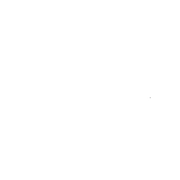- Level Foundation
- Duration 13 hours
- Course by Dartmouth College
-
Offered by

About
This course explores the concept of reality and the physics of the sky. You will travel through the philosophies and worldviews of early civilizations to the time of early scientists such as Plato, Aristotle, and Copernicus. You will learn how Galileo's findings with the telescope challenged the Aristotelian interpretation of the cosmos, about Galileo’s revolutionary conclusions on gravity, and Newton's universal law of gravitation. This course will also introduce you to the scientific methods and their limitations. You will also explore the properties and behaviors of homemade pendulums. Next, you will explore modern ideas of cosmology, of the Big Bang, and even recent speculations that our universe is not all there is. Mysteries and properties of light and how they were discovered, questioned, and confirmed through experiments over the past few hundred years through the present will also be discussed.Modules
Course Introduction | Introdução do Curso
1
Discussions
- Introduce yourself/Apresente-se
2
Videos
- Course Introduction
- Introdução do Curso em Português
1
Readings
- Welcome Reading
Cosmos and Reality
5
Videos
- Cosmos and Reality Part I From Religion to the Pre-Socratics
- Plato's Cave
- Cosmos and Reality, Part II: Aristotle
- Cosmos and Reality, Part III: Copernicus
- Conversation with David Kaiser
5
Readings
- Module 1 Reading List
- What Do You Know?
- What is Reality?
- Summary|Sumário
- Illustrate Plato's Cave
Physics of the Skies
1
Assignment
- Cosmos: Part 1
2
Discussions
- Physics of the Skies
- Física dos céus
2
Videos
- Physics of the Skies Part I
- Physics of the Skies Part II
2
Readings
- Summary Outline
- Discussion Topic
Scientific Methodology
2
Discussions
- Share: Investigating Pendulums
- Compartilhamento: Investigando Pêndulos
3
Videos
- Scientific Method
- Investigating Pendulums
- Module Weekly Wrap-Up Video
9
Readings
- Scientific Method Introduction
- Investigating Pendulums Introduction
- Step 1: Building a Pendulum
- Step 2: Getting to Know a Pendulum
- Step 3: Investigation 1: String Length and Bob Weight
- Test Your Experiment
- Step 3: Investigation 1: String Length and Bob Weight
- Challenge Questions: Directions
- Wrap-Up Activities
Quiz: Cosmos: Part 2
1
Assignment
- Cosmos: Part 2
Island of Knowledge
2
Videos
- Island of Knowledge Part I
- Island Of Knowledge Part II
2
Readings
- Module 3 Reading List
- Island of Knowledge Intro
Light, Space, and Time
6
Discussions
- Compartilhamento: O que é a Luz?
- Share: What is Light?
- Einstein’s Impact of Worldviews
- Impacto de Einstein nas Visões de Mundo
- Modern Day Applications of General or Special Relativity
- Aplicações Modernas da Relatividade Geral ou Restrita
4
Videos
- What Is Light Part I
- What Is Light Part II
- Einstein's Muse
- General Theory of Relativity
4
Readings
- What Is Light Introduction
- What Is Space? Time? Intro
- Einstein's Muse
- Discussion Topics
The Universe
4
Discussions
- Importance In the Universe
- Importância do Universo
- The Multiverse
- O Multiverso
6
Videos
- The Universe
- Universe or Multiverse
- Conversation with David Kaiser: The Multiverse
- Conversation with Mary-Jane Rubenstein The Multiverse
- Conversation with Matthew Kleban: The Multiverse
- Wrap-Up Video
5
Readings
- The Universe Intro
- Discussion Topics
- Challenge Questions: Directions
- Weekly Wrap-Up Activities
- Additional Translated Text
Module 2 Write | Escreva
1
Assignment
- Cosmos: Part 3
Auto Summary
"Question Reality: Cosmos" is a foundational course in Science & Engineering, led by Coursera. Delve into the evolution of our understanding of reality, from ancient philosophies to modern cosmology. Explore groundbreaking discoveries by figures like Galileo and Newton, and learn about the scientific method, pendulum properties, and the mysteries of light. This 780-minute course is perfect for curious minds starting their scientific journey, with subscription options available.

Marcelo Gleiser


